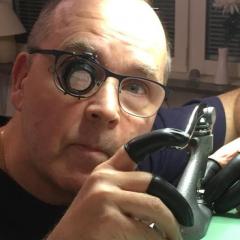Expiration Dates on Lubricants
-
Recently Browsing
- No registered users viewing this page.
-
Topics
-
Posts
-
By Neverenoughwatches · Posted
Its been a while since posting anything on this one. This is something i actually bought today, i needed a little pick me up after my past two weeks of stress. I particularly wanted the sliding pin vices around the top center area. But there are lots of other goodies to pick out if anyone wants to guess or inform . Thank you. -
By Neverenoughwatches · Posted
Refreshing to have a lady's approach to watch repair , welcome. -
By Neverenoughwatches · Posted
Plus the added foresight not to buy a watch with an AS 1012 inside it. -
That's very interesting information. I haven't tried to see if my bombé jewel holes have olive holes but I think I should be able to tell on the larger jewels at least. See if I get a chance to have a look later today. This little story was very comforting to read for a "bungler" like myself. That success isn't a given even for a pro. Thanks for sharing!
-
By Michael1962 · Posted
I forgot that I said I would do that. Will take some tomorrow and post them up post haste.
-






Recommended Posts
Join the conversation
You can post now and register later. If you have an account, sign in now to post with your account.
Note: Your post will require moderator approval before it will be visible.